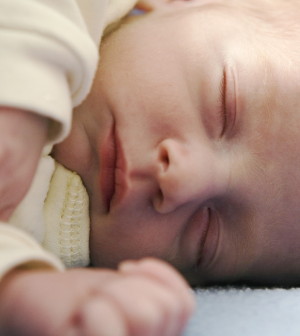- 8 Ways to Increase Dopamine Naturally
- 7 Best Breads for Maintaining Stable Blood Sugar
- Gelatin vs. Collagen: Which is Best for Skin, Nails, and Joints?
- The Long-Term Effects of Daily Turmeric Supplements on Liver Health
- Could Your Grocery Store Meat Be Causing Recurring UTIs?
- Are You Making This Expensive Thermostat Error This Winter?
- Recognizing the Signs of Hypothyroidism
- 10 Strategies to Overcome Insomnia
- Could Artificial Sweeteners Be Aging the Brain Faster?
- Techniques for Soothing Your Nervous System
Women With Asthma May Take Longer to Get Pregnant: Study


THURSDAY, Nov. 14Women with asthma seem to experience delays in getting pregnant, Danish researchers report.
Whether this trend is because asthma has a direct biological effect on fertility or because having asthma reduces the frequency of intercourse isn’t clear, however, the researchers said.
“There is an association between asthma and infertility due to an increased time to pregnancy,” said lead researcher Dr. Elisabeth Juul Gade, of the Respiratory Research Unit at Bispebjerg University Hospital in Copenhagen.
“At present, our findings can only indicate a trend. There is a need for clinical studies examining this issue in general,” she said. “We can, however, based on our data, trace a trend that suggests that it is just as important to be well treated for one’s asthma while trying to get pregnant as it is during pregnancy itself.”
The report was published Nov. 14 in the online edition of the European Respiratory Journal.
Dr. Len Horovitz, a pulmonary specialist at Lenox Hill Hospital in New York City, said the association between asthma and delays in pregnancy is clear.
Asthma is an inflammatory disease and inflammation can happen anywhere in the body, Horovitz said. “The inflammatory part of asthma may well be affecting not only bronchial tubes but also fallopian tubes,” he said.
This theory is supported by the fact that when women were treated for asthma, their ability to get pregnant improved, Horovitz said.
Dr. Avner Hershlag, chief of the Center for Human Reproduction at North Shore University Hospital in Manhasset, N.Y., said, however, that the explanation might be much simpler.
Citing a British study of more than 500,000 women published in 2007 in the American Journal of Epidemiology, he said there is no difference in the fertility rates between women with and without asthma.
“This Danish study is not looking at real fertility rates, but at delay in getting pregnant,” Hershlag said.
“It makes a lot of sense that, when you have a condition such as asthma, conception would be delayed,” he said. “I bet that if you studied almost any chronic illness, you would find similar results. Simply, maybe these couples have less frequent intercourse during the period of time they don’t feel well, and conception is delayed.”
The older British study is reassuring, Hershlag said. “Overall, patients with and without asthma have the same fertility,” he said. “Patients with asthma should not feel anxious, because there is absolutely no basis to assume that fertility will suffer from asthma.”
For the new study, Gade’s team collected data on more than 5,200 Danish female twins who were up to 41 years old. The women completed questionnaires that asked about asthma and fertility.
Using the data, the researchers were able not only to compare the twins, but also use them as a model for the whole population.
Gade’s group divided the women into those with and without asthma, as well as those whose asthma was being treated and those whose asthma wasn’t being treated. In addition, the women were asked whether they had been trying to get pregnant for more than a year without success and how many children they had.
Nearly 1,000 of the women had asthma. More of these women had a harder time getting pregnant than women without asthma (27 percent versus 21.6 percent), the researchers found.
Delayed pregnancy was significantly longer among women whose asthma was not treated compared with women whose asthma was being treated (30.5 percent of the untreated asthma group versus 23.8 percent of those receiving treatment), the researchers said.
In addition, women over 30 with asthma were more likely to experience delays in getting pregnant (32.2 percent of women over 30 versus 24.9 percent of women under 30).
Overall, however, women with asthma ultimately had the same average number of children as women without asthma, as those with asthma tended to have children earlier in life than those without asthma, the researchers said.
“Our hope is that our findings can give female asthmatics in infertility treatment a possible explanation as to why they experience prolonged time to pregnancy and thus are in need of fertility treatment,” Gade said. “It is well known that one of the greatest frustrations among [women with] unexplained infertility is lacking a reason behind their fertility problems.”
Whether asthma may also have an effect on male infertility isn’t known, Gade said. “Unfortunately, we do not have any data on that,” she said. “We have so far only focused on female fertility.”
More information
For more on asthma and pregnancy, visit the March of Dimes.
Source: HealthDay
Copyright © 2026 HealthDay. All rights reserved.










